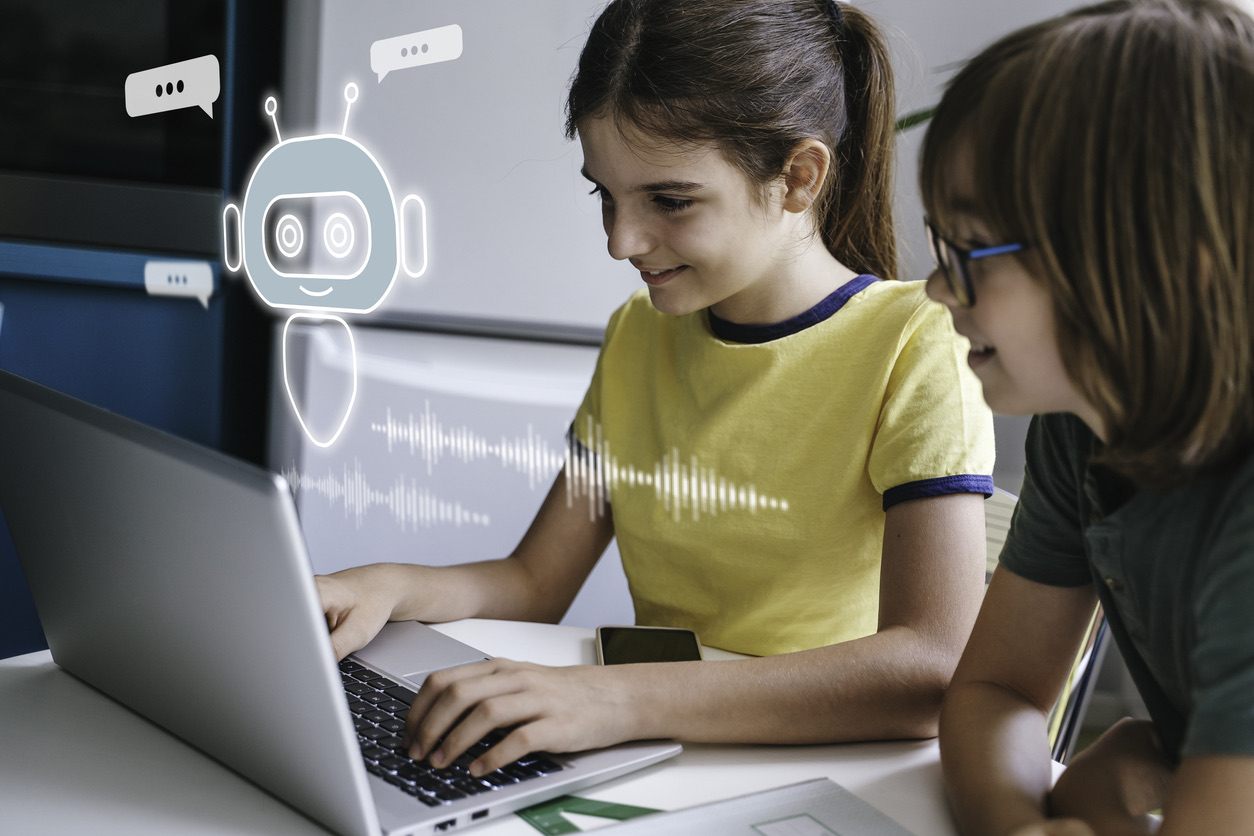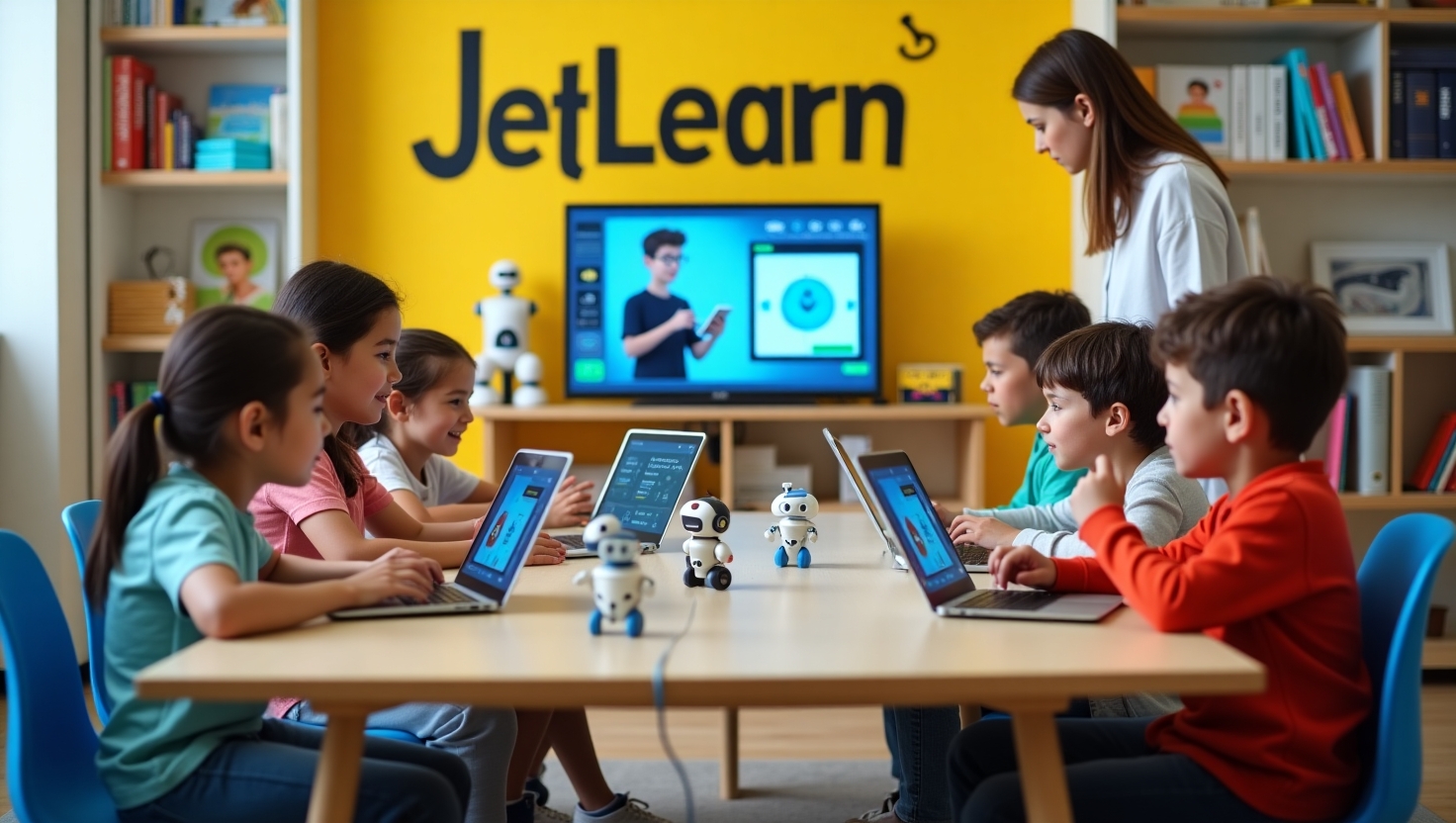AI Education for Kids 2025: The Complete Parent's Guide to Future-Ready Learning
AI Education for Kids 2025: The Complete Parent's Guide to Future-Ready Learning

Discover why AI education is essential for children in 2025. Learn about the best AI tools, courses, and strategies to prepare your kids for the future with comprehensive guidance for parents.
The AI Revolution in Children's Education
We're living in an unprecedented time where artificial intelligence is reshaping every aspect of our lives, and education is no exception. In 2025, AI education for children isn't just a luxury—it's becoming a necessity for preparing our kids for a future where AI literacy will be as fundamental as traditional reading and writing.
According to recent studies from the Digital Education Council and the Walton Family Foundation, children are already embracing AI technology at an remarkable rate. The question isn't whether our kids will encounter AI in their education—it's how we can guide them to use it effectively and safely.
Why AI Education is Crucial for Kids in 2025

Future-Proof Career Preparation
The job market of tomorrow will be fundamentally different from today. AI education doesn't just prepare kids for tech-related careers—it develops critical thinking, problem-solving, and creative reasoning skills that are valuable across all industries.
Children who understand AI concepts early will have a significant advantage in navigating and shaping the future workforce, regardless of their chosen career path.
Enhanced Cognitive Development
AI education teaches children to think logically, break down complex problems into manageable parts, and understand how machines process information—skills that enhance their overall cognitive abilities.
Digital Literacy and Safety
Understanding AI helps children become more discerning digital citizens, enabling them to identify AI-generated content, understand privacy implications, and use technology responsibly.
Creativity and Innovation
Contrary to popular belief, AI education actually enhances creativity by teaching children how to use AI as a tool for creative expression, from generating art to composing music and writing stories.
Top 10 AI Tools for Kids in 2025

1. Scratch with Machine Learning Extension
Age Range: 8-16 years
Perfect for beginners, this visual programming platform allows kids to create interactive stories, games, and animations while learning basic AI concepts through drag-and-drop coding.
2. Google's Teachable Machine
Age Range: 10+ years
An intuitive platform that lets children train their own machine learning models to recognize images, sounds, and poses without any coding required.
3. LittleLit AI
Age Range: 6-12 years
Designed specifically for young learners, combining AI education with creativity through storytelling, art generation, and interactive learning experiences.
4. Curipod
Age Range: 8-18 years
An AI-powered platform that creates interactive lessons and presentations, helping students learn various subjects while understanding how AI enhances education.
5. AI Kids Tablets with Scanner
Age Range: 4-12 years
Revolutionary learning tablets featuring over 50,000+ educational content pieces, AI tutoring capabilities, and scanner technology for interactive homework help.
Pro Tip for Parents
Start with visual tools like Scratch and Teachable Machine before moving to more advanced platforms. The key is to make learning fun and interactive while building foundational understanding.
How to Get Started: A Step-by-Step Parent's Guide
Step 1: Assess Your Child's Interest and Readiness
- Observe their current technology usage
- Ask about their interests in games, creativity, or problem-solving
- Consider their attention span and learning style
- Start with age-appropriate tools

Step 2: Create a Safe Learning Environment
Safety First Checklist:
- Set up parental controls and monitoring
- Establish clear rules about AI tool usage
- Discuss privacy and data sharing concepts
- Create designated learning times and spaces
Step 3: Start with Hands-On Projects
Beginner Projects (Ages 6-10):
- • Train an AI to recognize family photos
- • Create simple chatbot conversations
- • Use AI to generate fun artwork
Advanced Projects (Ages 11+):
- • Build voice recognition systems
- • Create AI-powered games in Scratch
- • Develop simple machine learning models
Top AI Courses and Programs for Children

JetLearn AI Programs
Comprehensive online courses covering AI fundamentals, machine learning basics, and practical applications through interactive projects.
CodaKid AI Education
Project-based learning platform that combines coding with AI concepts, perfect for kids who love hands-on experiences.
Inspirit AI Student Programs
Advanced programs for teenagers interested in serious AI study, including college-prep courses and research opportunities.
Local Community Programs
Many libraries, community centers, and schools are now offering AI literacy programs. Check your local resources for in-person options.
Investment in the Future
While some programs require investment, consider AI education as essential as traditional tutoring. Many free resources are available to start, with premium options for deeper learning.
AI Safety and Ethics for Children
Teaching Responsible AI Use
Understanding AI Limitations
Teach children that AI can make mistakes and shouldn't replace critical thinking.
Privacy Awareness
Explain what information is safe to share with AI systems and what should remain private.
Bias Recognition
Help children understand that AI systems can have biases and teach them to think critically about AI outputs.
Red Flags to Watch For
- • Over-reliance on AI for homework without understanding
- • Sharing personal information with AI chatbots
- • Believing everything AI generates is accurate
- • Using AI to create inappropriate content
- • Spending excessive time with AI companions
The Future of AI in Children's Education

What's Coming Next
The integration of AI in education is accelerating rapidly. By 2026, we can expect to see AI avatars teaching classes, personalized AI tutors for every student, and immersive AI-powered learning environments that adapt in real-time to each child's learning style.
Countries like China are already mandating AI education for children as young as seven. The U.S. is following suit with initiatives from the White House to advance AI education for American youth.
Preparing for Tomorrow, Today
The children who start learning AI concepts now will be the leaders, innovators, and problem-solvers of tomorrow. They won't just use AI—they'll shape how it develops and impacts society.
Start their AI education journey today, and give them the tools to not just adapt to the future, but to create it.
Taking the First Step: Your Action Plan
Ready to Begin? Here's Your Week 1 Checklist:
Days 1-3:
- □ Assess your child's current tech skills
- □ Research age-appropriate AI tools
- □ Set up a safe learning environment
Days 4-7:
- □ Try your first AI tool together
- □ Discuss AI ethics and safety
- □ Plan your learning schedule
The AI revolution in education isn't coming—it's here. By introducing your children to AI concepts, tools, and ethical considerations now, you're not just preparing them for future careers; you're empowering them to be thoughtful, capable citizens of an AI-enhanced world.
Remember, the goal isn't to raise little programmers (unless they want to be!). It's to cultivate curious, critical thinkers who can harness AI as a powerful tool for creativity, problem-solving, and positive impact. The journey starts with a single step—and that step begins today.
The Future is Now
Give your child the AI advantage they need to thrive in tomorrow's world.